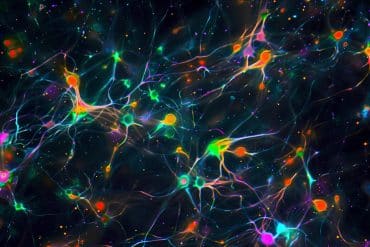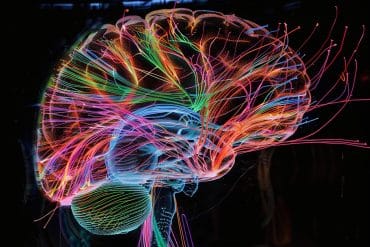Summary: Researchers discover neuro-metabolite alterations across the brain, linking stuttering to changes in brain circuits that control speech production and circuits that support attention and emotion.
Source: Children’s Hospital of Los Angeles
Researchers at Children’s Hospital Los Angeles (CHLA) have conducted the first study of its kind, using proton magnetic resonance spectroscopy (MRS) to look at brain regions in both adults and children who stutter.
Consistent with past functional MRI studies, their findings demonstrate neuro-metabolite alterations across the brain – linking stuttering to changes in brain circuits that control speech production and circuits that support attention and emotion. The study in now published online in the Journal of the American Medical Association (JAMA).
The research was led by Bradley S. Peterson, MD, Director of the Institute for the Developing Mind at CHLA, and Professor and Director of the Division of Child and Adolescent PNEW.jpgsychiatry at the Keck School of Medicine of the University of Southern California.
Developmental stuttering is a neuropsychiatric condition; its origins in the brain are only partly known. In order to measure an index of neural density related to stuttering in circuits and brain regions suspected to be affected, the scientists performed proton shift imaging of the brain in 47 children and 47 adults. The study included subjects both with and without stuttering.
The research team found that affected brain regions included major nodes of the so-called Bohland speech-production network (associated with the regulation of motor activity); the default-mode network, (involved in the regulation of attention); and the emotional-memory network (responsible for regulating emotion.)
“That stuttering is related to speech and language-based brain circuits seems clear,” says Peterson. “Attention-regulating portions of the brain are related to control circuits that are important in governing behavior. People with changes here are more likely to stutter and have more severe stuttering. And emotions like anxiety and stress also tend to make stuttering worse, likely because this network interacts with language and attention control circuits.”

This initial, unique MRS study of stuttering confirmed that disturbances in neuronal or membrane metabolism contribute to the development of stuttering. Looking at a combination of children and adults in order to detect the effects of stuttering, independent of life-stage, revealed differences between children and adults within both the stuttering and control samples. This suggests different metabolic profiles in children versus adults who stutter. Few sex-specific effects of stuttering on brain metabolites were observed.
Additional contributors to the study include Joseph O’Neill, PhD and Elena Pozzi, UCLA Semel Institute for Neuroscience; Zhengchao Dong, PhD, and Xuejun Hao, PhD, Columbia University; Iliyan Ivanov, MD, Mount Sinai Hospital; and Ravi Bansal, PhD, and Jay Desai, MD, CHLA and Keck School of Medicine, USC.
Funding: This study was funded by grant K02 74677 from the National Institute of Mental Health, the Millhiser Family Trust, the Suzanne Crosby Murphy endowment at Columbia University, and Children’s Hospital Los Angeles.
Source: Children’s Hospital of Los Angeles
Image Source: NeuroscienceNews.com image is in the public domain.
Original Research: The study will appear in JAMA.
[cbtabs][cbtab title=”MLA”]Children’s Hospital of Los Angeles. “Stuttering Related to Brain Circuits that Control Speech Production.” NeuroscienceNews. NeuroscienceNews, 23 November 2016.
<https://neurosciencenews.com/stuttering-neural-networks-5593/>.[/cbtab][cbtab title=”APA”]Children’s Hospital of Los Angeles. (2016, November 23). Stuttering Related to Brain Circuits that Control Speech Production. NeuroscienceNew. Retrieved November 23, 2016 from https://neurosciencenews.com/stuttering-neural-networks-5593/[/cbtab][cbtab title=”Chicago”]Children’s Hospital of Los Angeles. “Stuttering Related to Brain Circuits that Control Speech Production.” https://neurosciencenews.com/stuttering-neural-networks-5593/ (accessed November 23, 2016).[/cbtab][/cbtabs]







